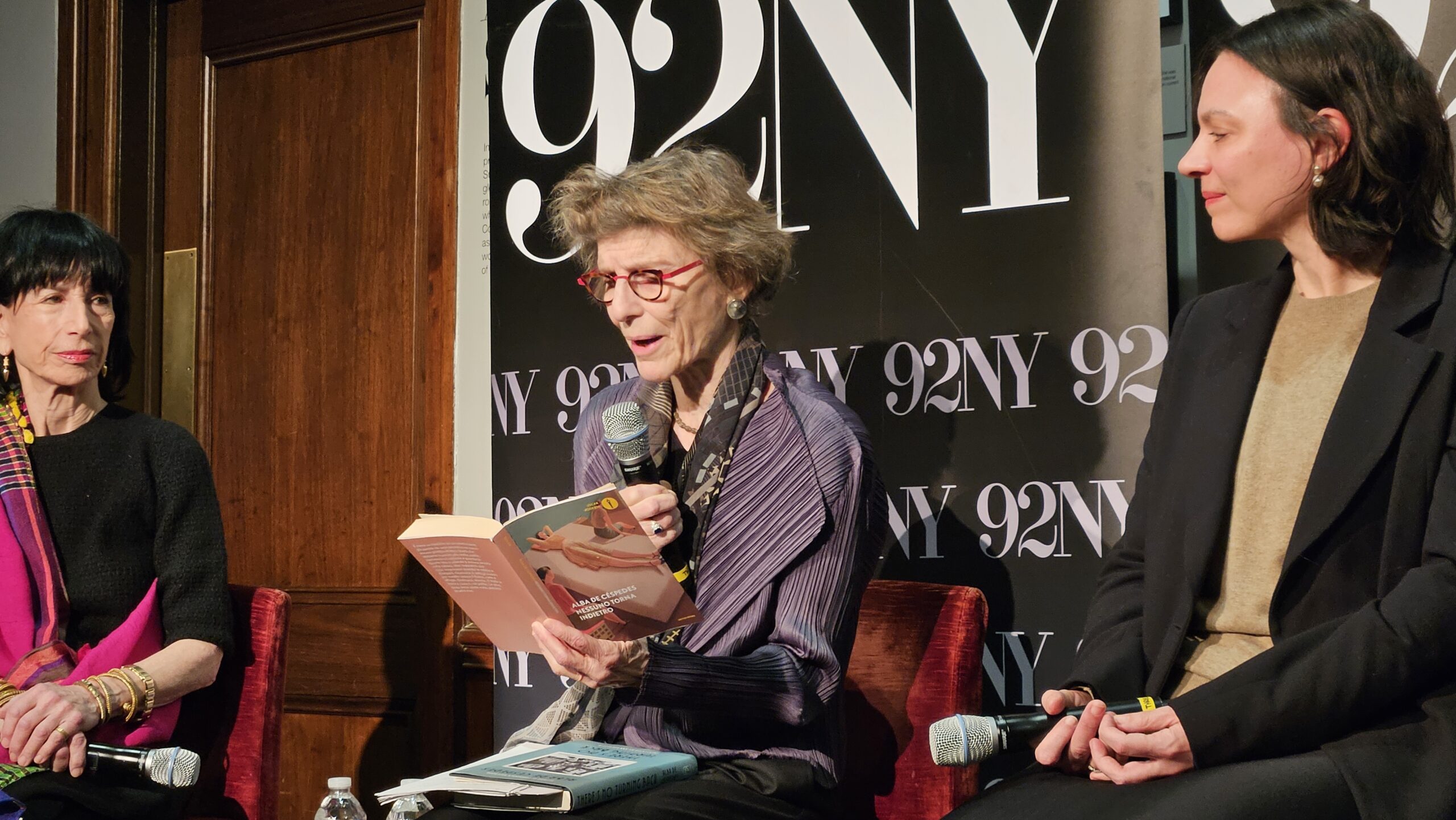Ann Goldstein’s journey into translation began in the 1990s, but her path was shaped by an earlier encounter with Italian while working as a copy editor at The New Yorker. Born in New Jersey in 1949, Goldstein’s fascination with Italian deepened when she first engaged with Dante’s Divine Comedy, a work that set her on a course that would ultimately lead to translating some of the most significant Italian voices for English-speaking readers.
Two of her most notable translations—those of Alba de Céspedes and Elena Ferrante—stand apart in time but share a potent urgency. Both authors explore the lives of women, dissecting the limitations imposed by society, their dreams stifled, and the unspoken constraints that shape their destinies. As Goldstein remarked during a February 19 event at The 92nd Street Y, titled Before Ferrante, a forum dedicated to bringing Italian literature to American audiences, “Their vision of reality is fierce, sometimes subversive.”

The conversation, moderated by n+1 editor-in-chief Dayna Tortorici and with Joanna Biggs and National Book Award winner Judith Thurman, centered on There’s No Turning Back (Nessun ritorno), de Céspedes’s first novel. The discussion delved into the challenges of translation, the novel’s timeless relevance, and how de Céspedes’s work connects to Ferrante’s.
Goldstein described Ferrante’s writing as “a constant, engulfing flow. A river in flood, sweeping the reader into the inner tumult of her protagonists, with an implacable rhythm.” Translating Ferrante, she explained, means immersing oneself in that current without losing its intensity. In contrast, she noted, de Céspedes’s prose moves with surgical precision: “Her language is sharp, shaped by a historical and social awareness that leaves no room for ambiguity.”
Originally published in 1938, There’s No Turning Back became an instant success, quickly translated into twenty-four languages and selling out upon release. However, the novel’s bold critique of women’s roles under Mussolini’s fascist regime led to its eventual censorship. The story follows eight young women at a Roman boarding school, but it is much more than a simple narrative. It is a defiant act against the rigid expectations imposed on women at the time.
Mussolini, the protector of a traditional, submissive ideal of womanhood—wife, mother, silent—deemed the novel a threat. In 1939, it was nominated for the prestigious Viareggio Prize, but just as quickly, the government intervened, revoking the nomination. By January 1940, the Ministry of Popular Culture banned the reprint of the book. Undeterred, the publisher found a loophole, continuing to print the novel without altering the edition number, thereby circumventing the ban.
For de Céspedes, writing was always about more than just telling a story—it was about confronting the harsh realities of women’s lives, where freedom was something that had to be fought for, not granted. “Every choice came at a cost,” Goldstein read aloud from the novel, bringing Augusta’s voice to life: “In our villages, a woman who has lived alone in the city is a lost woman. Those who stayed behind, passing from their father’s authority to that of their husband, do not forgive us for having held the key to our own room. And men do not forgive us for having studied, for knowing as much as they do.”
In the U.S., de Céspedes’s work was overlooked for many years. It wasn’t until Ferrante, one of Goldstein’s other literary giants, publicly named de Céspedes as one of the few authors she could read while working on her own novels that interest in de Céspedes was revived. In 2023, Forbidden Notebook (Quaderno proibito), de Céspedes’s 1952 novel, was published in English for the first time, translated by Goldstein.
Both Ferrante and de Céspedes share a deep commitment to rebellion through writing. For Goldstein, the challenge of translating their works has remained consistent: capturing the unsaid, the sharp edges of a sentence, and the fractured rhythm that carries raw emotion. “I don’t want my translation to smile when the text does not,” Goldstein said during the discussion. “Because translating is not about softening—it’s about truth. Fidelity is not harmony, but a respect for dissonance.”











